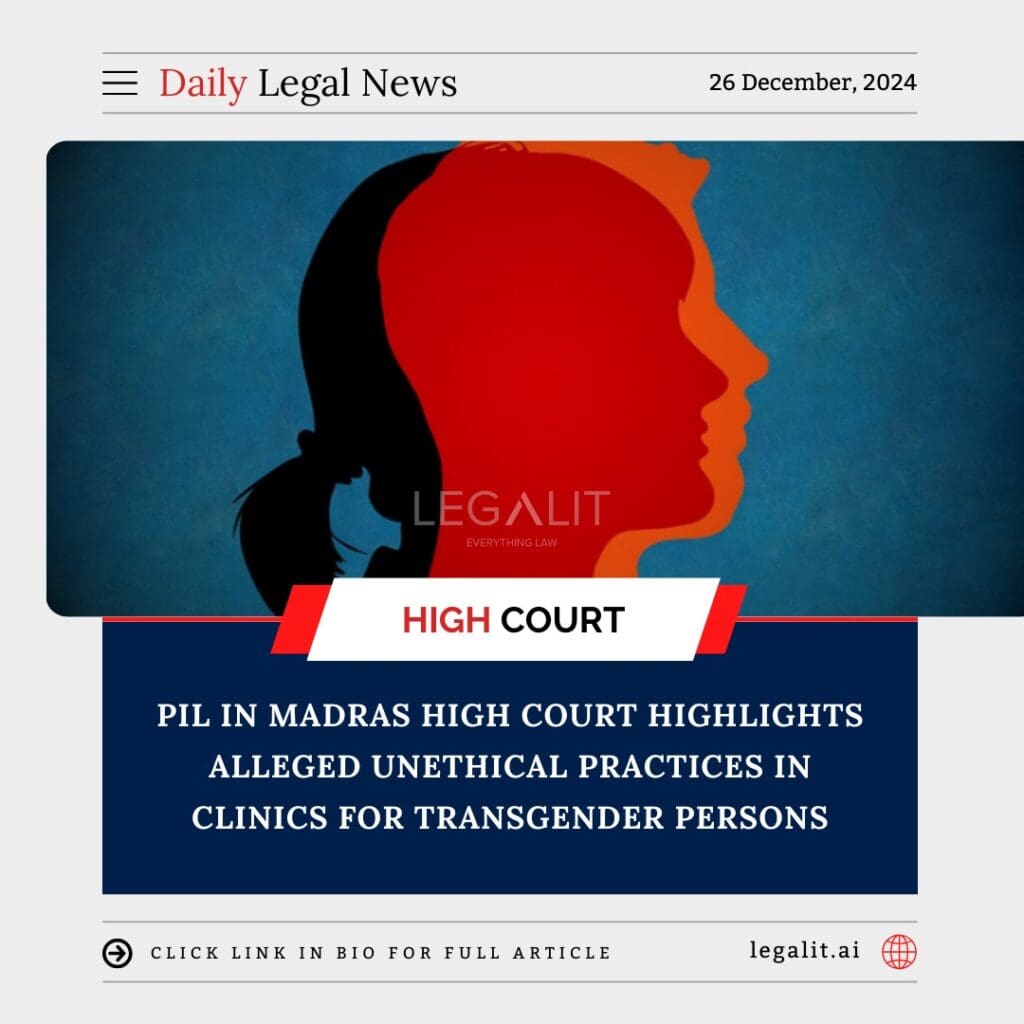
A Public Interest Litigation (PIL) filed in the Madras High Court has brought attention to alleged unethical practices by certain clinics providing healthcare to transgender persons. Among the concerns raised is the reported use of the two-finger test, a controversial and outdated practice that has been widely condemned by human rights organizations and medical experts.
Background
The PIL, filed by an activist working for transgender rights, highlights systemic issues faced by the transgender community in accessing ethical and inclusive healthcare services. The petitioner alleged that clinics catering to the community often lack adequate sensitivity and professionalism, subjecting individuals to practices that are degrading and inhumane.
Central to the PIL is the claim that some clinics continue to conduct the two-finger test as part of their medical assessments. This practice, previously employed in sexual assault cases, has been discredited and deemed irrelevant by medical experts. The Supreme Court of India also condemned its use in such contexts, terming it violative of fundamental rights.
The PIL further alleges that clinics often fail to adhere to guidelines set forth by the Transgender Persons (Protection of Rights) Act, 2019, which mandates non-discriminatory and respectful treatment of transgender individuals in healthcare settings.
Court Proceedings
During the initial hearing, the Madras High Court expressed its concern over the allegations and sought responses from the state government and healthcare regulatory authorities. The court emphasized the need to ensure that clinics comply with ethical medical practices and that transgender individuals are not subjected to discriminatory or invasive procedures.
The petitioner has urged the court to direct the government to establish oversight mechanisms for clinics providing healthcare to transgender persons, including mandatory training for medical practitioners on gender sensitivity.
Broader Implications
Ethical Challenges in Healthcare for Transgender Persons
The case sheds light on the gaps in the healthcare system that disproportionately affect transgender individuals. Despite legal protections, many clinics fail to provide dignified and appropriate care, leading to violations of their rights.
Need for Regulatory Oversight
The PIL underscores the necessity for stricter regulatory oversight of clinics catering to marginalized communities. Establishing standardized protocols and enforcing compliance with ethical practices could prevent such violations in the future.
Role of Judiciary in Protecting Marginalized Groups
The judiciary has consistently played a pivotal role in safeguarding the rights of transgender individuals, as evidenced by landmark judgments like the National Legal Services Authority (NALSA) v. Union of India case. This PIL offers an opportunity to reinforce these protections and address systemic gaps in healthcare delivery.
Conclusion
The PIL filed in the Madras High Court serves as a wake-up call to address the pressing issues faced by transgender persons in accessing ethical and inclusive healthcare. As the court deliberates on the matter, it is expected to pave the way for stronger safeguards and accountability mechanisms. By addressing these challenges, the legal system can ensure that healthcare services for transgender individuals align with principles of dignity, respect, and equality.